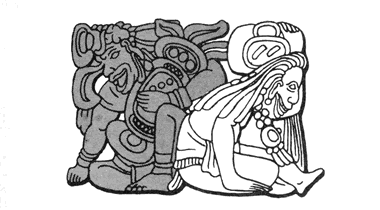|
were thinking when you
awoke. "On recalling that thought," he says, "you will find that
it was consequent on a dream, and this dream will immediately
begin to return."
Gradually, he develops the theory for which he is best known—that of "serial time." His rather complicated theory may be somewhat oversimplified in the following explanation: Any sequence of events occurring in "time" must be capable of being observed by someone outside of the time "field" of the events, someone capable of "timing" the events taking place. In daily life, as we actively go about our lives, our attention is on the events that happen to us as they occur, so we are not fully aware of the way events are connected. When we go to sleep, however, we are no longer concerned with time as a movement from past to future; thus, our attention can move forward as well as backward along all these connections between events. In a dream we are just as likely to have our attention drawn to a future as to a past event, since we are in a different dimension, a different "time field." Dunne’s theory has implications for several "psychic" phenomena, and readers will likely be inspired to discover implications of their own. About precognitive dreaming, Edgar Cayce once suggested that nothing of importance happens to individuals that is not first previewed in dreams. Perhaps precognition is one of the natural functions of the dream—to allow the dreamer the opportunity to look over upcoming events and to experience some "previews of coming attractions" without being driven along by the "river of time." Dunne might have agreed with this assessment; at least, his theory offers some explanation as to why and how precognitive dreams occur.  193
|